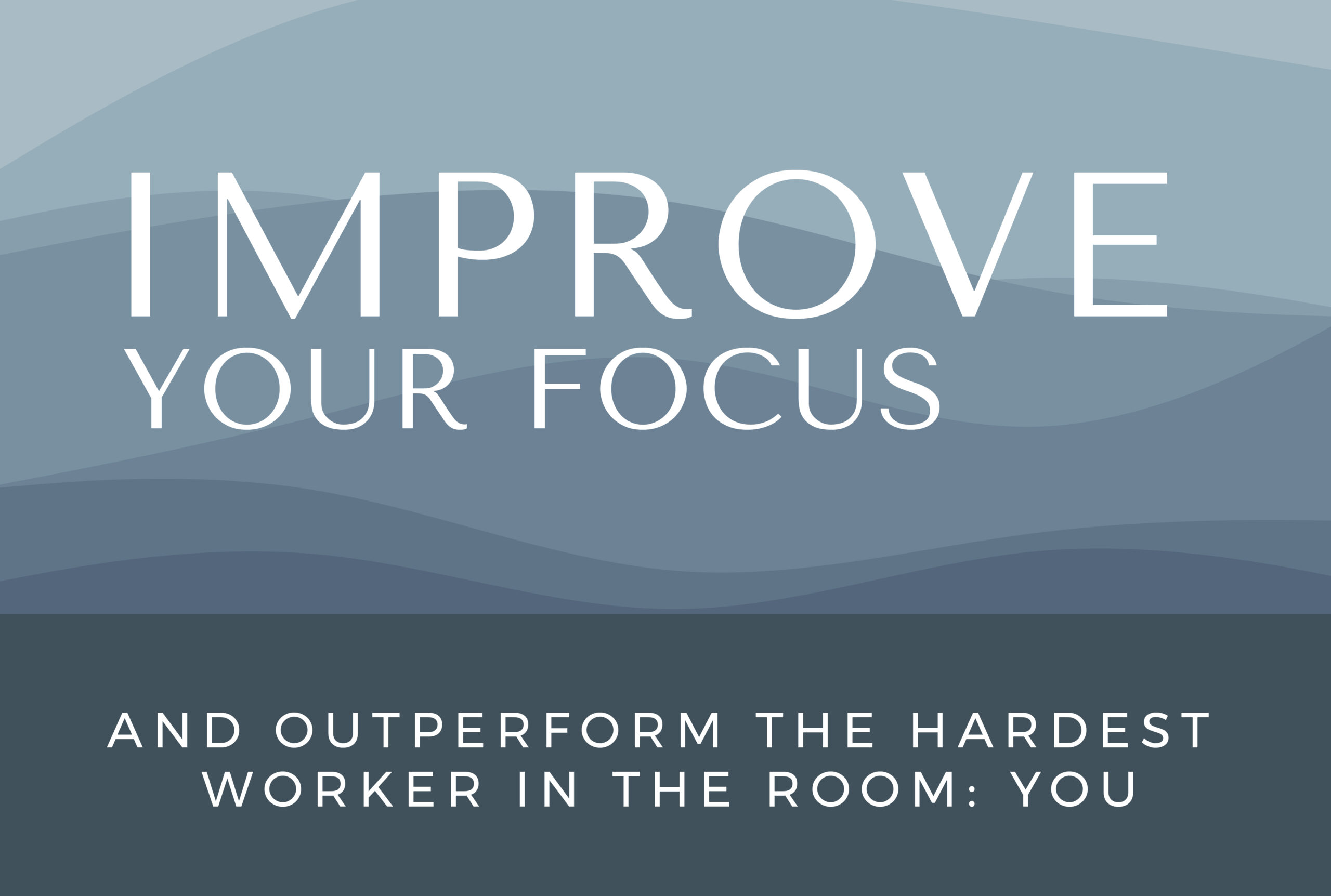
Improve Your Focus and Outperform the Hardest Worker in the Room: You
Inspired by this week’s Moms Making Six Figures Podcast episode with Laurel Hamblin, an incredibly successful realtor in the Treasure Valley at the young age of twenty-three, who credits her success to her pursuit of personal growth and the time she invested in herself and her career by taking the steps necessary to establish focus, even when it required (and continues to require) sacrifice.
In addition to the stress, the worry, and the very real consequences the last two years have brought many of us, now we’re facing another fallout: the inability to focus. According to Harvard Medical School, ‘brain fog’ can be caused a variety of factors that accumulate in “wear and tear that affects processing”; these factors can range from physiological stressors to the very real plague of information overload. “We are bombarded with information from TVs, computers, and messages such as texts or emails. ‘When there’s too much material, it burdens our filtering system and it’s easy to get distracted.’” So how do we get back to our ability to focus? How do we become so passionate about the task at hand that we lose all track of time, notifications, and the buzzing of our devices?
Start Here
Our brain is a muscle, and does a lot of heavy lifting. Neuropsychologist Kim Willment suggests rehabilitating our brain’s capacity for focus by participating in a single-task exercise like reading. “Read something for 30 minutes, setting a timer to go off every five minutes. When it goes off, ask yourself if your mind as wandered. If so, just refocus on what you’re reading. By training your brain to monitor if your mind is wandering, you strengthen the monitoring process and the ability to maintain focus on a single task.”
No Direction
Performance Psychologist, Helen D’Silva, attributes our struggle to focus to a lack of clarity about what we need to do next. Without clear steps in the beginning phase of any task, we will succumb to our emotions and become derailed. It’s worth noting, that the plan itself doesn’t need to be fool proof. Instead, our plan simply needs to trick our own inner critic to feel confident enough to move forward in taking the next step.
Warren Buffet’s “2 List” Strategy
Part of our inability to focus is largely due to our inability to prioritize; we believe that everything deserves our time and attention and we struggle to say no to tasks and other people’s priorities that pull us away from our own. Buffet asked his personal pilot to go through this exercise to help him to better focus on what mattered most to him. First, he had him create a list of 25 career goals, then he had him circle his top 5 goals; at this point he had 2 lists, List A, and 20 un-circled items on List B. Buffet’s pilot, Flint, said we would begin working on List A right away, to which Buffet asked what he would do with List B.
Flint replied, “Well, the top 5 are my primary focus, but the other 20 come in a close second. They are still important so I’ll work on those intermittently as I see fit. They are not as urgent, but I still plan to give them a dedicated effort.”
To which Buffett replied, “No. You’ve got it wrong, Mike. Everything you didn’t circle just became your Avoid-At-All-Cost list. No matter what, these things get no attention from you until you’ve succeeded with your top 5.”
Be Still
When you’re trying to focus and make headway on a project or a goal, nothing can be more frustrating than tasks that pull you out of “the zone”. Unfortunately, that zone rarely requires intentionality or your full presence. In order to get focused rather than busy, we must first get still. “Mindfulness is about focusing attention on the present moment and practicing mindfulness has been shown to rewire the brain so that attention is stronger in everyday life,” says Kim Willment.
Unplug
Distraction has become our new normal, and our devices are normalizing that distraction. According to AARP, older Americans have superior attention spans due in large part to their limited interaction with technology during vital years. “When participants in a study at Hokkaido University in Japan performed a task on a computer, those with a phone nearby performed more slowly than those who had a memo pad. Similarly, a single notification on your phone weakens your ability to focus on a task, researchers at Florida State University found. Those notifications may be short, but ‘they can prompt task-irrelevant thoughts, or mind wandering,’ the researchers wrote.”
Even worse? Our inability to unplug is creating anxiety and increased stress levels. When our bodies are in a physiological state of “fight or flight” we cannot expect to focus on any higher-level thinking or performance for that matter.
While there are simple ways to improve our focus like keeping the room at an optimal temperature (77 degrees according to Cornell University) and chewing gum, the truth is that in order to reap the rewards of our increased ability to focus, we have to first put in the hard work to recalibrate our brains by cutting through the noise of the outside world. When you establish your focus again, protect and maintain it. You can only outwork the hardest worker, if you can focus your hard work on the most important goals on List A.


Post a comment:
You must be logged in to post a comment.